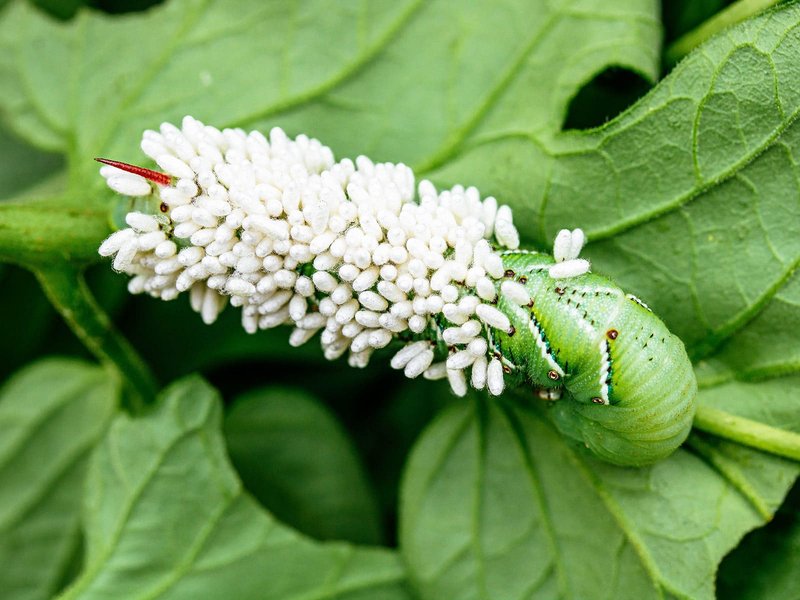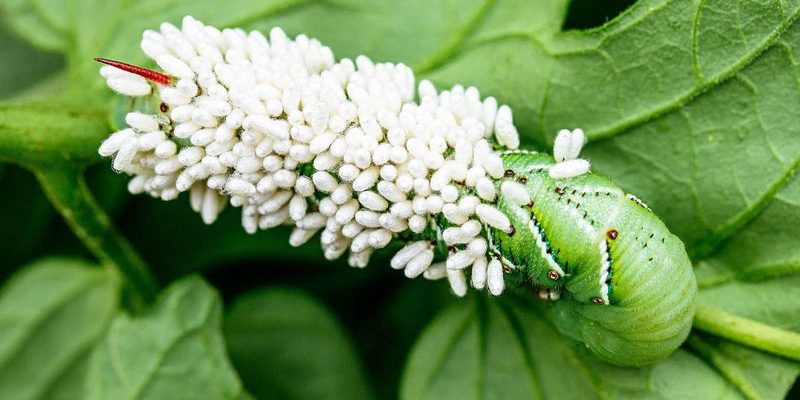
Imagine you’re sitting in your garden, sipping a cool drink, watching beautiful birds swoop down to munch on those green menaces. To make this vision a reality, you need to understand what birds are good at munching on hornworms and how to invite them into your gardening space. Let’s dive into the world of birds and hornworms, and I’ll guide you through simple steps to make your garden a bird-friendly haven.
Why Attract Birds to Your Garden?
You might be wondering why it’s important to attract birds to help with hornworms. Birds are nature’s pest control, acting like little aerial predators that help maintain balance in your garden ecosystem. They not only target hornworms but also feast on other garden pests, such as aphids and beetles. Think of them as your garden’s personal bodyguards.
Attracting birds can also enhance the beauty of your garden. Watching them flit around and hearing their songs can transform your gardening experience from a chore into a delightful retreat. Plus, having a variety of birds around can promote biodiversity, which is essential for a healthy ecosystem.
But how do you go about inviting these helpful birds? It’s all about creating the right environment and providing the resources they need to feel welcome. Let’s explore some effective strategies!
Choosing the Right Plants to Attract Birds
The first step in attracting birds is to choose the right plants. Birds are drawn to certain flowers and shrubs, especially those that produce seeds or berries. Here are some popular choices:
- Sunflowers: These tall, cheerful flowers provide seeds that many birds love, including finches and sparrows.
- Berry-producing bushes: Plants like holly and elderberry can attract birds looking for a quick snack.
- Nectar-rich flowers: Hummingbirds, in particular, can be drawn to flowers like trumpet vine and bee balm.
Planting a mix of these options can create a buffet for your avian friends. Moreover, having a variety of plants can provide shelter and nesting spots. Birds tend to prefer gardens that offer places to hide and rest. So, think about layering different plants to create a diverse habitat.
Creating a Bird-Friendly Habitat
To really roll out the welcome mat for birds, you need to make your garden a safe and appealing space. Here are some tips to create a bird-friendly habitat:
1. **Provide Water:** Birds need water for drinking and bathing. A simple birdbath or a small pond can attract them in no time. Ensure the water is fresh and changed regularly.
2. **Add Nesting Materials:** Use natural materials like twigs, grasses, and leaves to help birds build their nests. This can encourage them to settle in your garden.
3. **Limit Pesticides:** If you’re serious about attracting birds, consider reducing or eliminating pesticide use. Chemicals can harm birds and deter them from visiting your garden.
Creating a safe haven will help ensure that birds not only visit your garden but also stick around!
Building Birdhouses and Feeders
Another great way to attract birds to your garden is by building birdhouses and setting up feeders. Birdhouses provide shelter, while feeders offer a reliable food source. Here’s how to make both inviting:
Birdhouses: Choose the right dimensions for the birds you want to attract. For example, bluebirds prefer houses with a 6-inch by 6-inch floor and a 1.5-inch entrance hole. Make sure they’re placed at least 5-10 feet off the ground in quiet areas.
Feeders: There are many types of feeders, such as platform, tube, and suet feeders. Opt for one that caters to the birds in your area. Fill the feeders with seeds that birds love, like sunflower seeds or mixed birdseed. Regularly refill and clean your feeders, as this will keep them coming back for more!
Choosing the Right Feed
Selecting the right bird feed is key to attracting birds that prey on hornworms. You want to create an attractive menu. Consider these options:
- Sunflower Seeds: Loved by many species, sunflower seeds are high in energy.
- Niger Seed: This tiny seed attracts finches, which can help control hornworm populations.
- Peanut Butter Suet: This protein-rich food attracts woodpeckers and other insect-eaters.
When you regularly refresh the feed, you’re creating a reliable food source that will encourage more birds to visit your garden. Just picture the delightful sight of them swooping down to snack on hornworms!
Understanding Which Birds Hunt Hornworms
Now that you’re doing all the right things to attract birds, let’s talk about which specific birds you want to invite into your space. Some birds are particularly known for their appetite for hornworms. Here are a few to look out for:
1. **Bluebirds:** These stunning birds love to hunt for insects, including hornworms. They often perch on fence posts or low branches, scanning for movement below.
2. **Wrens:** Wrens are energetic and agile. Their small size allows them to dart among your plants and find hidden hornworms.
3. **Chickadees:** These curious birds have a varied diet and will happily munch on hornworms when they can find them.
4. **Woodpeckers:** While they primarily go for bark insects, they can also feast on hornworms, especially if they’re close to the stems of plants.
Knowing which birds to attract can help you focus on specific qualities in your garden setup.
Monitoring and Adjusting Your Bird Habitats
Attracting birds is an ongoing process. You’ll need to monitor their activities and be willing to make adjustments. Here are some things to keep an eye on:
– **Bird Activity:** Keep a journal of which birds visit your garden and what they feed on. You might discover that certain birds prefer specific plants or feeders.
– **Plant Health:** Ensure that your plants remain healthy and robust. Healthy plants produce more pests like hornworms, which will lure birds to your garden.
– **Seasonal Changes:** Some birds are seasonal visitors. Prepare your garden for winter by keeping feeders filled with high-energy foods.
By keeping your eyes peeled for changes and trends, you’ll make your garden a thriving hotspot for birds that love to hunt hornworms.
Final Thoughts on Attracting Birds That Prey on Hornworms
Attracting birds that prey on hornworms can be a game-changer for your garden. Not only do they help manage pest populations, but they also enhance the overall experience of spending time outside. By selecting the right plants, providing water, building birdhouses, and choosing the right feeds, you can create an inviting space for these beneficial visitors.
Remember, patience is key. It might take a little time for the birds to discover your garden, but with persistent effort and care, you’ll soon be enjoying the sight of birds swooping down to assist in your battle against hornworms. So, take a sip of that cool drink, sit back, and remember that you’re not alone in the fight for a healthy garden!

